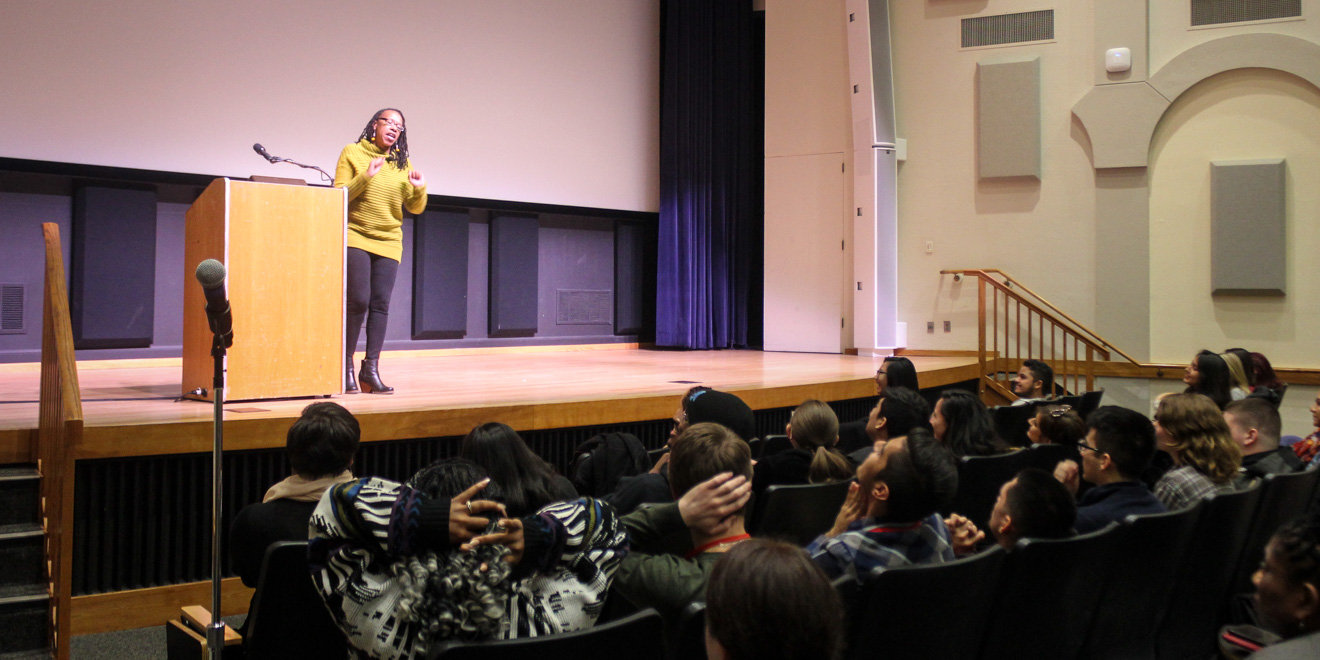The first annual Stanford First Generation and/or Low Income (FLI) Conference was held this past weekend. Around 250 students and school administrators from Stanford and other elite universities including Duke and UC Berkeley participated in the conference, which was based around the theme of “uplifting voices.”
The aim of the conference was to bring FLI students together as well as to create action items that students could bring back to their own campuses to help support FLI communities there, said co-chairs Ian Macato ’19 and John R. Oberholzer ’19.
“The general purpose is twofold in my opinion,” Macato said. “One, to build out our national community and really have those experiences — of being FLI students at these different institutions — sort of collectivized together and [to] build out that community. Two, I think it’s about being action-oriented and trying to get change on our campuses to better support FLI students.”
The conference consisted of workshops and keynote lectures addressing various topics of interest to the FLI community. Students also attended social events such as a Community Center progressive, where students rotated between community centers and heard from Stanford students about the mission and work of those centers.
The conference theme was intended to run through all aspects of the programming.
“We’re focusing our workshops and our keynotes on the theme ‘uplifting voices,’ which refers both to FLI students uplifting our own voices and speaking up for ourselves, but also specifically uplifting the voices of the most marginalized in our community,” Oberholzer said.
East coast Ivy League schools like Yale, Harvard and the University of Pennsylvania have hosted FLI conferences in the past, but Stanford’s FLI conference was geared more towards schools on the west coast. Conference attendees this past weekend included students from private, public and community colleges on the west coast as well as Ivy League students and administrators.
The idea of hosting a FLI conference had been discussed in the Stanford FLI community for many years, the co-chairs said. Now finally realized, the conference is an initiative started by the student group First-Generation and/or Low Income Partnership (FLIP) in collaboration with both the Diversity and First-Generation Office (DGen) and the Leland Scholars Program (LSP), a month-long residential program for first-generation, low-income students that takes place before the start of a new student’s freshman year. A team of 15 students, including Macato and Oberholzer, spent a year planning the conference.
“We figured that this year would be a really good year to do it, just building on the momentum of the expansion of the DGen office and all the amazing work that FLIP has been doing,” Macato said.
Both Oberholzer and Macato said they put in a great deal of effort to put on this initial conference in order to lay the groundwork for future iterations.
“With this being the very first year, that has been a challenge in and of itself … [so] creating this for the first time, it has really been about, ‘What do we want the foundation of this conference to be?,’” Macato said.
Both Elle Winfield, president of Duke University’s Low-Income and First Generation Empowerment (LIFE) program, and Nadia Thompson, a member of LIFE, said they were impressed with the resources and activism at Stanford after having attended a talk at the Native American Community Center as part of the conference.
“Seeing how other schools have implemented support for low income and first-gen students, and then how those students work to advocate for their own support, is really important in implementing our own program,” Thompson said.
Winfield added that she hopes to bring back the lessons learned at the conference to Duke’s campus.
Conference programing also highlighted the subject of FLI identity.
“Stanford’s FLI community is strong, and we have been for a long time,” Oberholzer said. “And that’s because student activism made it that way … We have a national movement right now at private schools to be supporting FLI students, and for FLI students to … be proud of being FLI. [To] recognize the assets and the power of being first-generation and/or low income … is a part of that momentum that we have moving forward.”
Both Adriena Brown, assistant director of Stanford’s First-Generation and Low Income Programs, and Jennifer Rolen, assistant dean and associate director of the DGen Office, said they were proud of the efforts of student organizers.
“Our hope for the conference is just that some sort of change happens, that people leave here feeling like it was useful, that it was beneficial, that they learned something, that they grew, that they were challenged in some way to go back and make a positive change,” Brown said.
Rolen acknowledged the conference’s theme, adding that her personal goal is to help FLI students to enact change.
“My biggest hope and goal is, just like the theme of the conference, to uplift voices — for these students to be heard, for the administrators that are doing this work to be heard, and then … to create change from the knowledge that’s exchanged and all the power that’s in the room,” she said.
Contact Jordan Payne at jpayne1 ‘at’ stanford.edu.
